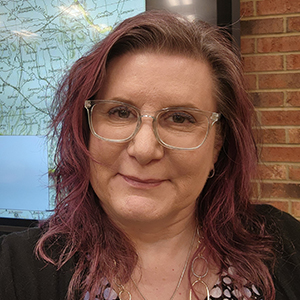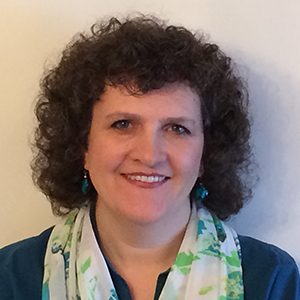Join the NYG&B for an online seminar (held over two days) focused on Eastern European family history research. Experts on Eastern European genealogy will lead sessions on various topics, including understanding geography and places of origin; accessing and using both U.S. and European records of various types; navigating language barriers; and breaking through brick walls in research. Topics for genealogical research will include Austrian, Latvian, Lithuanian, Hungarian, Jewish, Polish, Russian, Slovakian, and Ukrainian ancestors.
This is an online event only. All sessions will be recorded and made available to registrants for on-demand viewing through April 28, 2025.
Workshop Schedule (Subject to Change)
Wednesday, February 26
|
1:00 – 2:00 p.m. |
Understanding Eastern European Geography: Borders, Peoples, and Histories Presented by Michelle Tucker Chubenko, AG® |
This session will help researchers navigate the complex history of shifting borders of Eastern Europe. Attendees will explore the region's diverse ethnic and cultural landscape and learn how empires and key historical events from the 18th century through the Cold War shaped our ancestral landscape. Practical tips will be offered for locating towns, interpreting multi-language records, and accessing relevant archives. |
|
2:15 – 3:15 p.m. |
Finding Families in Eastern Europe: Census Records and More Presented by Rhoda Miller, Ed.D., CG® |
Both Austria-Hungary and the Russian Empire compiled information about households in census-like records at various times. Censuses were undertaken in Austria-Hungary from 1868 through 1910. The Russian Empire compiled Revision Lists from 1719 until 1858, family lists from time to time thereafter, and an Empire-wide census in 1897. Using Russian Empire document examples, this session will explain how families can be followed from one Revision List to the next. Austria-Hungary census records will be discussed in a related manner. This session will also demonstrate the importance of knowing an ancestor’s place of registration for finding related records. |
|
3:30 – 4:30 p.m. |
Eastern European Ancestry in the Big Apple Presented by Michelle Tucker Chubenko, AG® |
Did your ancestors arrive in the late 1800s or early 1900s? This session is designed to equip attendees with the knowledge and resources needed to trace their Eastern European ancestry in New York metropolitan area, highlighting the significance of census, vital records, and immigration documents in genealogical research for Polish, Ukrainian, Slovak, Hungarian, Russian and Jewish ancestors. |
|
4:45 – 5:45 p.m. |
Identifying Place of Origin of Polish Immigrants Presented by Julie Roberts Szczepankiewicz |
This session offers an in-depth look at the process of gathering and interpreting evidence for place of origin of Polish immigrants, with an emphasis on the use of period and phonetic gazetteers and maps to resolve apparent conflicts in evidence. |
Thursday, February 27
|
1:00 – 2:00 p.m. |
Understanding Eastern European Records Presented by Rhoda Miller, Ed.D., CG® |
This session will delve into the Eastern European records utilized to satisfy the Exhaustive Research component of the Genealogical Proof Standard. The records will include: Vital/Metrical Records, Books of Residents, Change of Address Applications, Internal Passports, External Passports, Court decisions regarding citizenship, and Electors’ Lists. (Note: The focus is on records from Lithuania and Latvia). |
|
2:15 – 3:15 p.m. |
Getting Around the Language Barrier: Translation Aids for Polish Genealogy Presented by Julie Roberts Szczepankiewicz |
This session introduces the Polish history and geography, which determined the languages required for research, followed by an overview of available types of translation aids and assistance. Tips and strategies for deciphering foreign-language records will be included. Attendees will be equipped to develop research plans based on their desired degree of independence in research. |
|
3:30 – 4:30 p.m. |
Did My Great-Grandmother Have a Family? A Documents and DNA Case Study Presented by Rhoda Miller, Ed.D., CG® |
Do you have a “floating” female ancestor that cannot be attached to a larger tree? Brick walls in Eastern European research often involve elusive female ancestors. This case study will demonstrate ways to break through that brick wall with problem-solving strategies utilizing records, oral history, photographs, DNA, mapping, and cluster techniques. (Note: The case study involves a Hungarian family). |
Pricing
- NYG&B Member Early Registration: $189 (ends January 27, 2025; after that registration rate for members is $215)
- General Registration: $259
About the Presenters

Michelle Tucker Chubenko, AG®, AGL™ specializes in the Mid-Atlantic region and Eastern European research. She is a founding member with the “Nashi Predky/Our Ancestors” Family History Group at the Ukrainian History and Education Center (Somerset, New Jersey) and in 2023, coordinated the institute course Researching Your Ancestry in the Crownland of Galicia, Austria-Hungary. Since 2021, she has hosted a monthly Q&A Zoom session Have Questions? Get Answers for Research in Galicia.
Rhoda Miller, Ed.D., CG® has been a Certified Genealogist since 1998, retired 2023, specializing in Jewish research and Holocaust studies. Rhoda is a Past President of the Jewish Genealogy Society of Long Island (JGSLI) and currently serves on the Liaison Committee of the International Association of Jewish Genealogy Societies (IAJGS). She is a past board member of LitvakSIG and is currently the Coordinator for the Svencionys District Research Group of LitvakSIG. Rhoda retired as a Genealogist Researcher for Ancestry ProGenealogists.

Julie Roberts Szczepankiewicz has been researching her family’s origins in Poland, Germany, the United States, and Canada for nearly 30 years. She is President of the Polish Genealogical Society of New York State, and previously served as Secretary of the Polish Genealogical Society of Massachusetts and Vice-President of the New England Regional Genealogical Consortium. She administers several genealogy-related Facebook groups, and writes a blog, From Shepherds and Shoemakers.